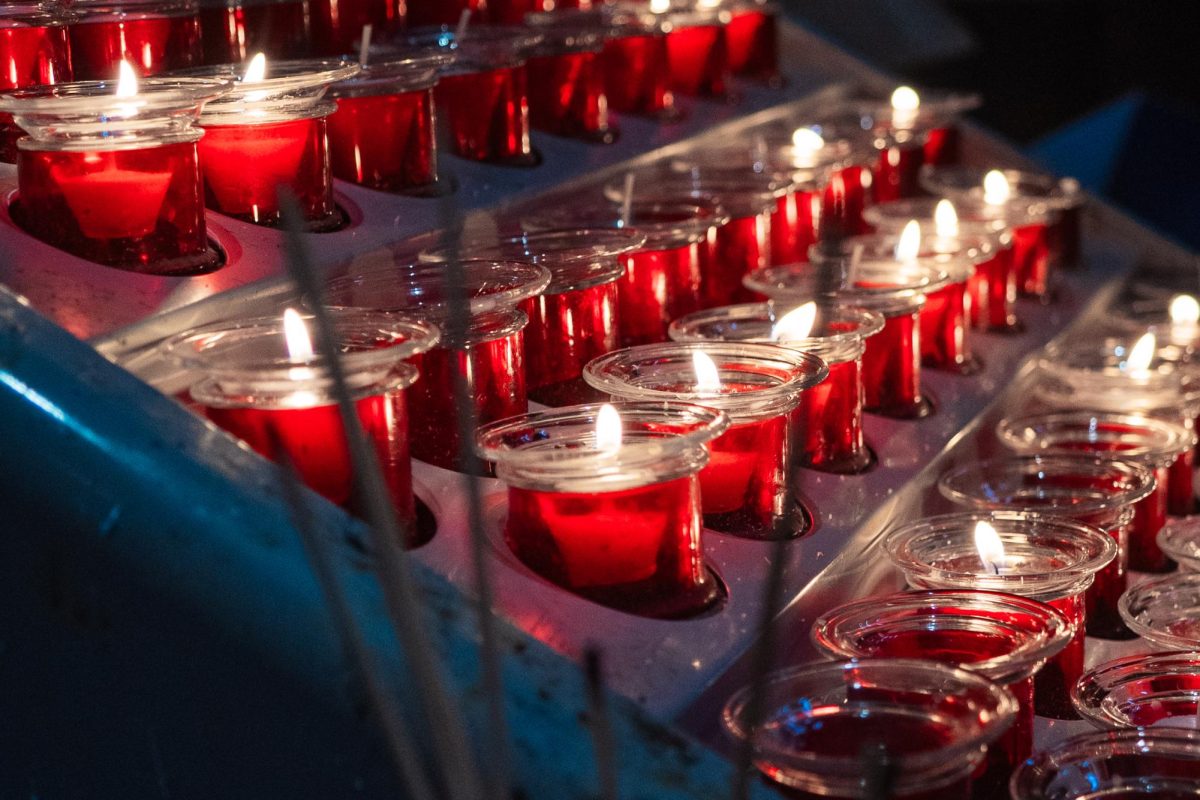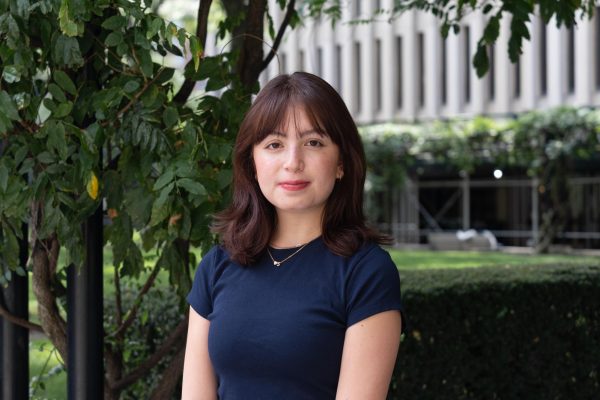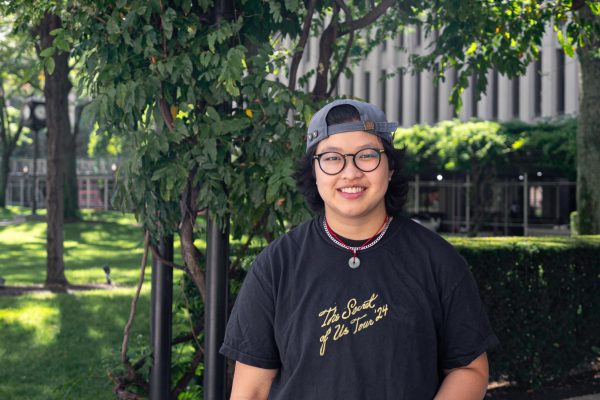On Oct. 14, the theology department’s newsletter featured the latest development in Fordham’s Taking Responsibility initiative, a $160,000 grant for research on clergy sexual abuse. The newsletter closely followed the announcement of Superior General Arturo Sosa’s confirmation of Fordham’s Jesuit mission.
Revelations of clergy sexual abuse in the Roman Catholic Church, and a call by the Society of Jesus to take accountability for its part in this, prompted Fordham to launch the first phase of the Taking Responsibility initiative in 2019. Phase one aimed to uncover structures within the church that enabled and hid the abuse. The initiative recently received a $160,000 grant to launch their second phase through an international research project.
The initiative’s webpage details how “the long-lasting harm and suffering inflicted on vulnerable victim-survivors, the evil and scandal perpetrated by abusers, and the sorry record of silence, denial, or cover-up on the parts of church leaders have precipitated a crisis of faith, trust, and moral and spiritual credibility.” Through research, their goal is to shine light on the “features of Jesuit educational institutions that, in the past, facilitated both abuse and concealment.”
“We thought that Restorative Justice and Jesuit intellectual and spiritual traditions might make good conversation partners in the construction of a new model that communities could use in dealing with clergy abuse.” John Seitz, Associate Professor of Theology
The second phase of the initiative is being spearheaded by John Seitz, associate professor of theology at Fordham Lincoln Center, as well as theologians Sónia da Silva Monteiro and Carolina Montero Orphanopoulos.
Seitz explained that their initial research “to help (Jesuit) institutions become leaders in the care, protection, and well-being of every person” turned their focus onto “restorative justice,” an approach to trauma “that focuses less on retribution and more on repair and restoration.”
“In thinking about the first phase’s final report, we saw an emphasis on the idea that Jesuit (and other) institutions should ‘focus on justice rather than on strict adherence to the letter of the law,’” Seitz said. “We thought that Restorative Justice and Jesuit intellectual and spiritual traditions might make good conversation partners in the construction of a new model that communities could use in dealing with clergy abuse.”
The interdisciplinary work they are planning will involve a review of relevant literature, a series of meetings and the securing of support and publicity amongst Jesuit leaders and communities.
The Taking Responsibility team is currently assembling a group of research fellows for their second phase, composed of international scholars in restorative justice and other related fields — some of whom are survivors of abuse themselves. Phase two aims to explore the intersections between restorative justice and Jesuit values.
“It is really important to emphasize … the involvement of survivors, who have a perspective on this that others simply cannot have,” Seitz said.
The interdisciplinary work they are planning will involve a review of relevant literature, a series of meetings and the securing of support and publicity amongst Jesuit leaders and communities. With these efforts, the team hopes to construct a new model for communities to use in confronting clergy abuse by 2027.
Seitz described the importance of utilizing the concept of restorative justice in their approach to the plan.
“(Restorative justice) enables diligent attention to the sorrowful and difficult details of what happened in cases of clergy sexual abuse without getting wholly swallowed up by them,” Seitz said. “It is both attentive to the past and forward looking, in the direction of repair, care, and restoration.”

The launch of Taking Responsibility’s second phase was announced soon after Sosa’s confirmation of Fordham’s Jesuit mission based on the 2024–25 Mission Priority Examen (MPE).
The practice of the examen prayer, put forth by Saint Ignatius, calls for individuals to examine each of their days and find where God might have been present. In doing so, one is enabled to express gratitude and acknowledge one’s mistakes.
Following this practice, many Jesuit universities and institutions undergo a self-examination every seven years to review how effectively they are following their Jesuit missions. The MPE reports Fordham’s most recent self-examination.
The MPE summarizes the strengths and weaknesses of Jesuit messaging on campus revealed through a number of interviews and focus groups that involved students, alumni and faculty. It also lists four priorities that Fordham plans to focus on to strengthen its Jesuit mission: bettering teaching, research, faith-based culture and community engagement.
John Cecero, vice president of Mission Integration and Ministry, specifically noted that Fordham should work on “making people aware of our Jesuit mission from the time that they come to Fordham, all the way through graduation and beyond.”
“We have seen that there is around 30 (to) 35% of the students that … have reported as Catholic, and I am personally concerned about that,” Cecero said. “I think we need to have a kind of core group of Catholic students here in order to engage in the kind of dialogue with people of different religious traditions.”
The MPE states that, in an Aug. 2024 study of prospective and current students, 29% of the current undergraduates attributed Fordham’s Jesuit mission as their reason for enrollment. 27% reported that their original negative feelings or indifference toward the mission turned into appreciation over their time at Fordham. 40% said that the Jesuit mission did not affect their Fordham experience.
Cecero cited the recent rebranding of the university’s slogan to “For What Matters” as a step towards emphasizing Fordham’s Jesuit identity. He explained the slogan’s roots in the Ignatian concept of “magis,” which urges the prioritization of the greater good, doing more for God by doing more for others.
“The way we talk about ourselves, communicate about ourselves, but that has to be an expression of how we authentically live here on the campus,” Cecero said.
“It changes how we tell our story so that the language we use in our marketing material is all deeply familiar. It’s the same message but described in, we hope a more intriguing, persuasive way.” Tania Tetlow, University President
University President Tania Tetlow addressed the new rebrand when she met with the Fordham student press on Oct. 16.
“It changes how we tell our story so that the language we use in our marketing material is all deeply familiar. It’s the same message but described in, we hope a more intriguing, persuasive way,” Tetlow said.
Erin Hoffman, director of Campus Ministry for Lincoln Center, also pointed to Ignatian themes of the greater good and how they should drive the conduct of the Fordham community.
“Ignatius really saw value in being integrated into the cities and getting to know people (as opposed to) other religious orders, which were more monastic,” Hoffman said. “He was like, ‘Go into the cities, find out what people need, respond to the times that we’re in.’”

Following these values using the Ignatian examen, the MPE’s Implementation and Integration section reflects an effort to enhance the Fordham community’s engagement with Jesuit themes. To build community among students, a new intercampus first-year experience will be developed to encourage cross-campus connection.
Hoffman described the eye-opening nature of the MPE that will ultimately foster growth.
“We recognize that we’re a human institution — we’re not a perfect institution — and that there’s always opportunity for growth,” Hoffman said. “I think that what it helps to focus on is not just change for the sake of change, but intentional change that leads to growth.”
Cecero also spoke to what can be learned from the examen. Describing the complex process of confirmation, Cicero said students and staff should “take consolation in the fact that (Fordham’s) mission has been viewed and reviewed at multiple levels. The bottom line is: (Fordham is) doing something right.”
“Whether it’s a very intentional spiritual prayer practice … or taking a little bit more of a secular version of (an examen), I think it can offer everybody a way to grow more into the person that you feel like you’re meant to be.” Erin Hoffman, Director of Campus Ministry at FCLC
Hoffman echoed this sentiment, explaining that, in her 15 years at Fordham, she has seen the practice of the Jesuit mission “becoming more and more palpable, instead of the opposite, which does tend to happen at institutions over time.”
Hoffman and Cecero both urged students to leverage Ignatian teachings to prioritize what is meaningful and purposeful, and encourage authentic living.
“Ignatius would often ask, ‘What is your deepest desire … that you might get a job?’” Cecero said. “And hopefully we’ve prepared all our students to get jobs, but the real question is, ‘Are you going to get the position that makes you happy?’”
Hoffman encouraged students to reflect thoughtfully on how they spend their days, because “there’s so much learning that can happen when we stop and notice.”
“Whether it’s a very intentional spiritual prayer practice … or taking a little bit more of a secular version of (an examen), I think it can offer everybody a way to grow more into the person that you feel like you’re meant to be,” Hoffman said.
Both Campus Ministry and Mission Integration continue to underscore the significance of Fordham’s Jesuit roots not just as a chapter of the university’s past, but as a theme to drive its future.



